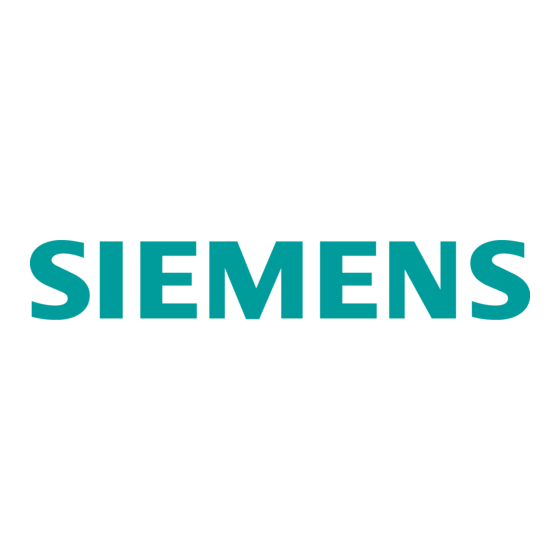Siemens EH Series Benutzerhandbuch - Seite 6
Blättern Sie online oder laden Sie pdf Benutzerhandbuch für Kochfeld Siemens EH Series herunter. Siemens EH Series 20 Seiten.
Auch für Siemens EH Series: Gebrauchsanweisung (34 seiten), Gebrauchsanweisung (16 seiten), Handbuch für Installation und Gebrauch (20 seiten), Gebrauchsanweisung (24 seiten)

en Disposal
3.2 Saving energy
If you follow these instructions, your appliance will use
less energy.
Select the cooking zone to match the size of your
pan. Centre the cookware on the hob.
Use cookware whose base diameter is the same dia-
meter as the hotplate.
Tip: Cookware manufacturers often give the upper
diameter of the saucepan. It is often larger than the
base diameter.
¡ Unsuitable cookware or incompletely covered cook-
ing zones consume a lot of energy.
Cover saucepans with suitable lids.
¡ Cooking without a lid consumes far more energy.
Lift lids as infrequently as possible.
¡ When you lift a lid, a lot of energy escapes.
4
Disposal
Find out here how to dispose of old appliances cor-
rectly.
4.1 Disposing of old appliance
Valuable raw materials can be reused by recycling.
Unplug the appliance from the mains.
1.
Cut through the power cord.
2.
Dispose of the appliance in an environmentally
3.
friendly manner.
Information about current disposal methods are
available from your specialist dealer or local author-
ity.
5
Induction cooking
5.1 Advantages of induction cooking
Induction cooking is fundamentally different from tradi-
tional cooking methods, since the heat builds up dir-
ectly in the cookware. This offers numerous advant-
ages:
¡ Saves time when boiling and frying.
¡ Saves energy.
¡ Easier to care for and clean. Spilled food does not
burn on as quickly.
¡ Controlling the heat supply and safety; the hob in-
creases or decreases the heat supply as soon as
the user changes the setting. The induction cooking
zone stops the heat supply if you remove the cook-
ware from the cooking zone without you having to
switch it off first.
5.2 Cookware
Only ferromagnetic cookware is suitable for induction
cooking.
For example:
¡ Enamelled steel cookware
¡ Cast iron cookware
¡ Special stainless steel cookware that is suitable for
induction cooking
6
Using a glass lid
¡ You can see into the pan through a glass lid
without having to lift it.
Use pots and pans with flat bases.
¡ Uneven bases increase energy consumption.
Use cookware suited to the quantity of food.
¡ Large items of cookware containing little food need
more energy to heat up.
Cook with little water.
¡ The more water contained in cookware, the more
energy is required to heat it up.
Turn down to a lower heat setting early on. Use a suit-
able ongoing cooking setting to continue cooking.
¡ If you continue cooking with an ongoing cooking
setting that is too high, you'll waste energy
This appliance is labelled in accord-
ance with European Directive
2012/19/EU concerning used elec-
trical and electronic appliances
(waste electrical and electronic equip-
ment - WEEE).
The guideline determines the frame-
work for the return and recycling of
used appliances as applicable
throughout the EU.
You can find additional information on which items of
cookware are suitable for the induction cooking under
→ "Checking the cookware", Page 13
In order to achieve a good cooking result, ensure that
the ferromagnetic area of the cookware base corres-
ponds to the size of the cooking zone. If the cookware
is not detected on a cooking zone, place it on a cook-
ing zone with a smaller diameter.
The base of many items of induction cookware is not
fully ferromagnetic:
